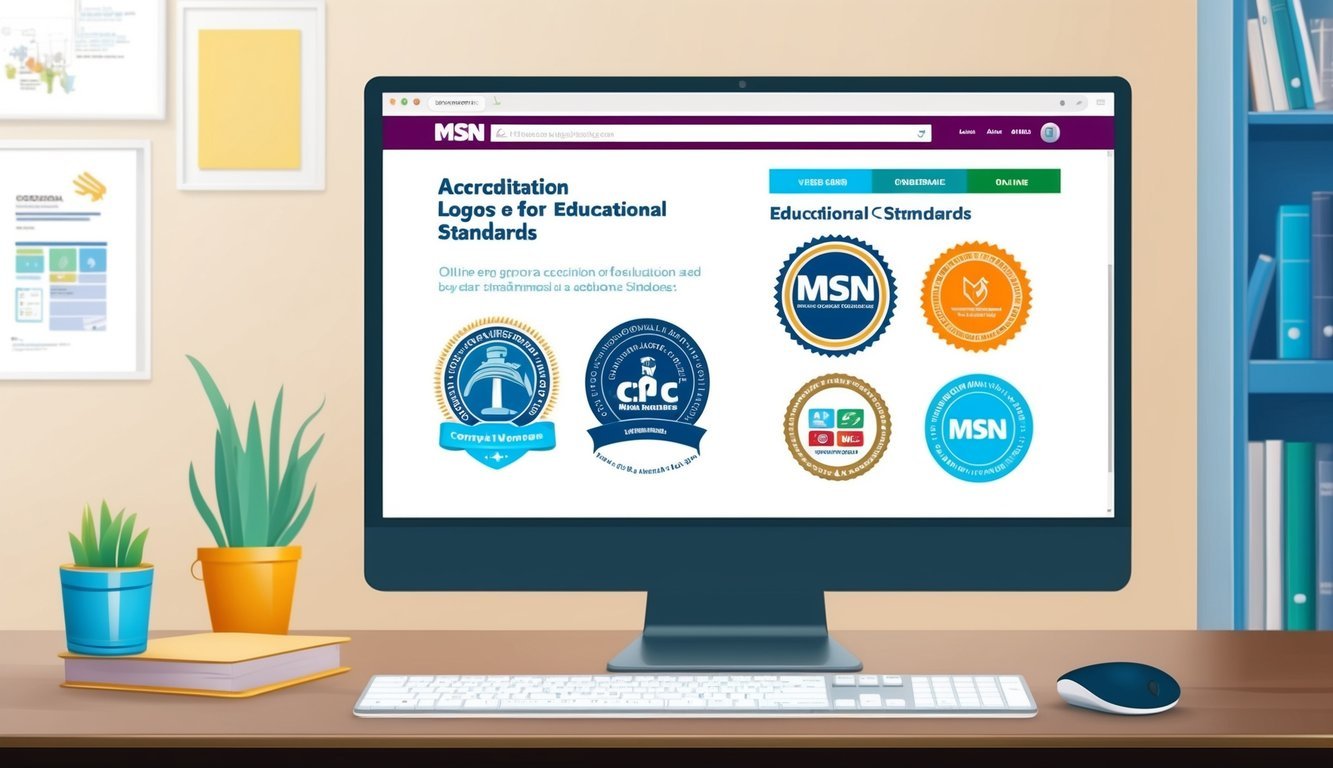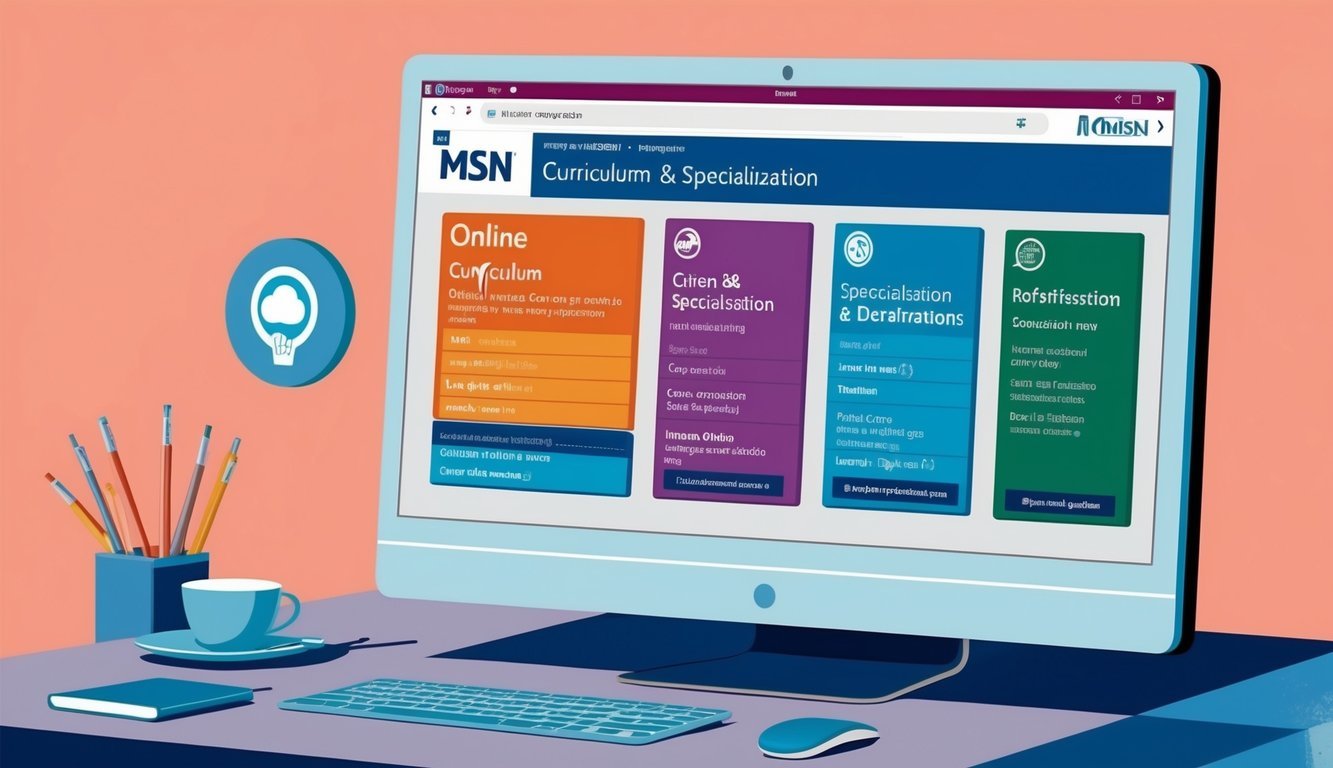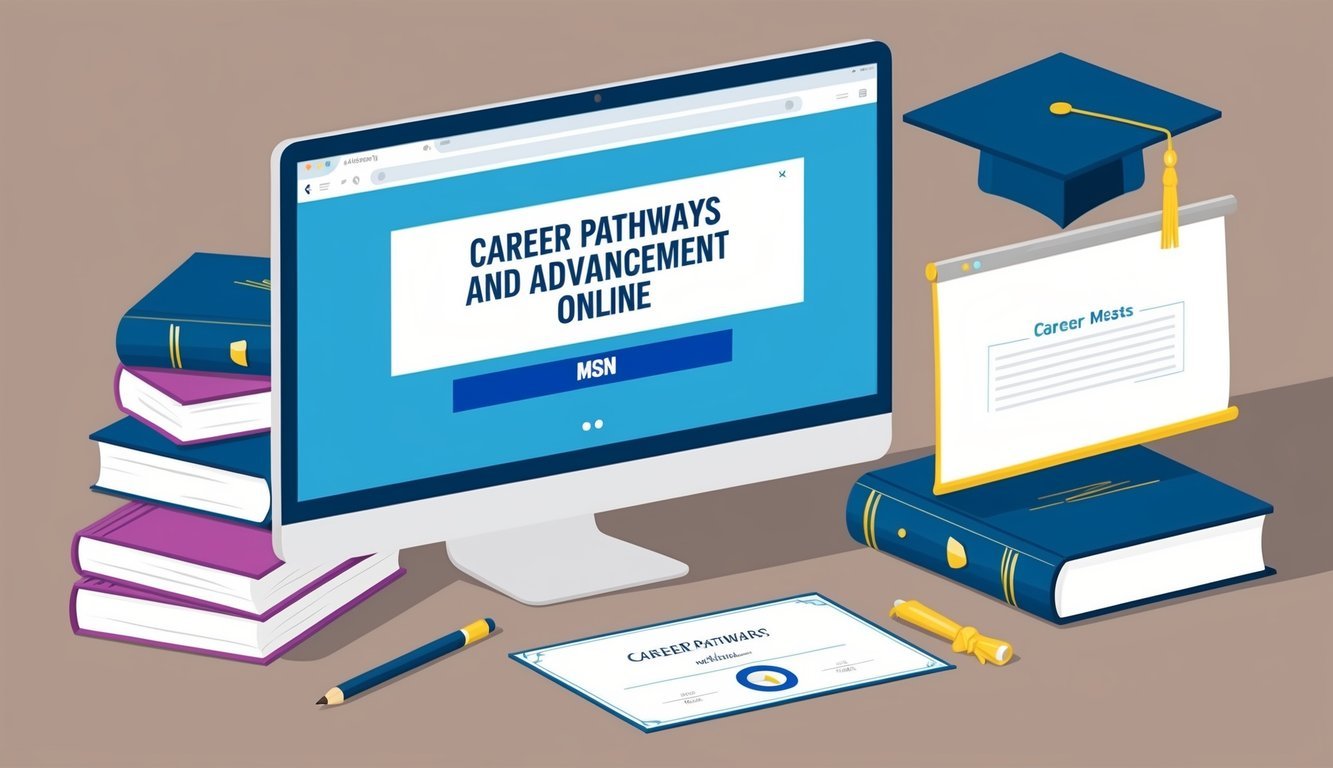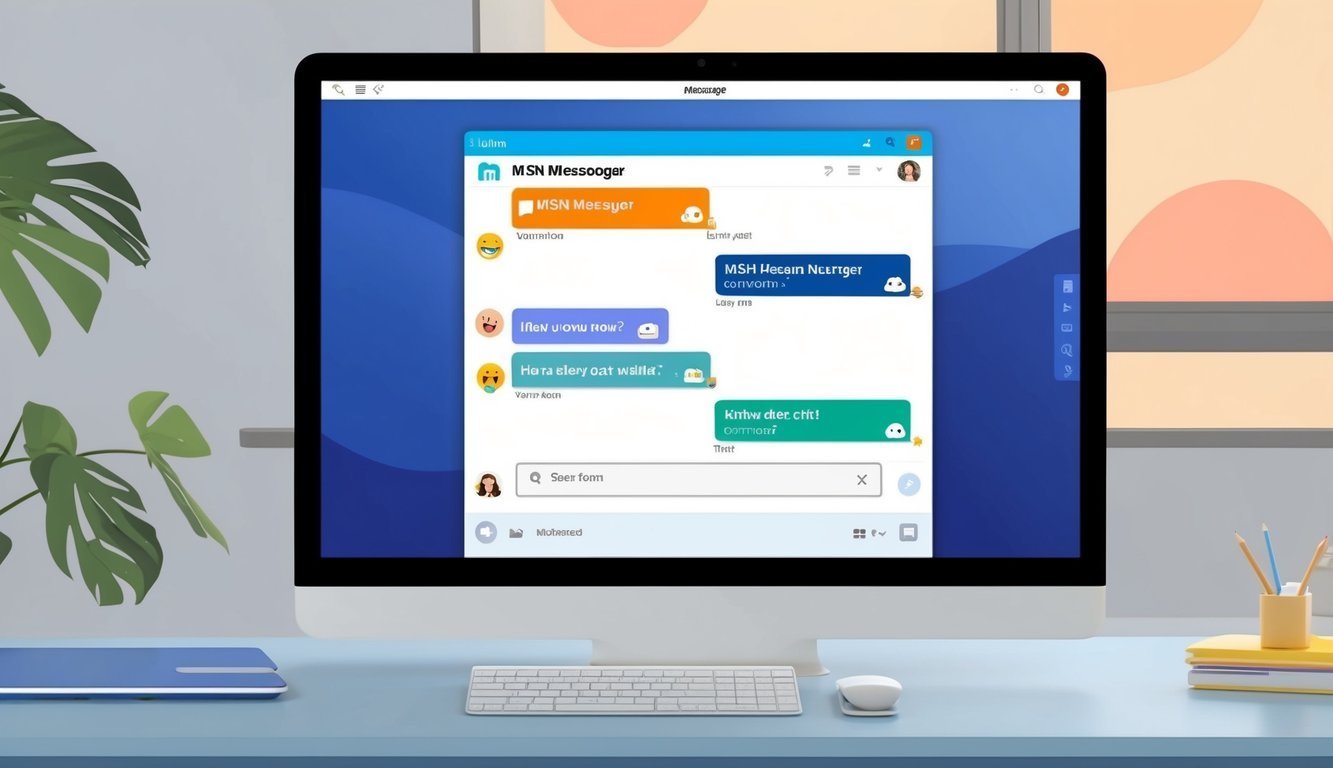You may be considering advancing your nursing career through an online Master of Science in Nursing (MSN) program.
These programs offer flexibility and specialized training, allowing you to balance work, family, and education effectively.
The rise of online learning has transformed how nursing professionals can obtain their degrees, making it easier than ever to enhance your skills and qualifications.
Pursuing an online MSN can open doors to various career opportunities, from clinical practice to leadership roles in healthcare.
Many programs offer focused pathways, such as Nurse Practitioner, Nurse Educator, or Nurse Administrator, which cater to your specific interests and career goals.
With options from institutions like the University of South Carolina and Southern New Hampshire University, you can find a program that aligns with your aspirations.
Enrolling in an online MSN program not only boosts your career prospects but also equips you with the knowledge needed to address complex healthcare challenges.
Whether you are looking to transition into advanced practice or pursue an administrative position, these programs are designed to meet the demands of today’s healthcare environment.
Overview of Online MSN Programs
Online Master of Science in Nursing (MSN) programs offer flexible pathways for nurses seeking advanced education and career advancement.
These programs provide specialized knowledge while accommodating your existing professional responsibilities in nursing education and practice.
Definition and Scope of MSN
A Master of Science in Nursing (MSN) is a graduate nursing program designed for registered nurses who want to enhance their expertise.
MSN programs often focus on specific tracks, including nursing leadership, education, and clinical specialties.
Typically, these programs require a bachelor’s degree in nursing and a valid nursing license.
Many institutions offer online formats, allowing you to balance your studies with work and personal commitments.
Courses cover advanced nursing concepts, research methodologies, and healthcare systems.
You can also gain practical skills through clinical experiences tailored to your interests, enhancing your qualifications for roles such as nurse practitioner, educator, or manager.
Benefits of Online Learning
Pursuing an online MSN provides numerous advantages.
The flexibility of online learning means you can study at your own pace and from any location.
This is essential for working professionals who need to juggle jobs and family commitments.
Some benefits include:
- Convenience: Access course materials anytime, facilitating better time management.
- Cost-effectiveness: Many online programs have lower tuition costs than traditional in-person options.
- Diverse Learning Environment: Online platforms often connect you with peers from various backgrounds and locations, enriching your educational experience.
Furthermore, online programs typically have fewer credit requirements compared to on-campus counterparts, allowing you to earn your degree in a shorter timeframe.
For example, programs such as the Online MSN at Southern New Hampshire University require only 36-51 credits, depending on the track.
Accreditation and Educational Standards

Accreditation plays a crucial role in ensuring that online Master of Science in Nursing (MSN) programs meet quality educational standards.
It verifies that institutions provide a curriculum that meets professional expectations and prepares you for advanced nursing roles.
Purpose of Accreditation
Accreditation serves to validate the quality and effectiveness of nursing programs.
It ensures that educational institutions meet specific standards set by recognized accrediting bodies.
This process benefits you as a student in multiple ways:
- Quality Assurance: Accreditation confirms that your program adheres to rigorous educational and professional standards.
- Transferability of Credits: Accredited programs often facilitate the transfer of credits between institutions, improving your educational opportunities.
- Eligibility for Licensure and Certification: Many state boards of nursing require graduation from an accredited program for licensure.
Nursing education would not achieve its potential without this scrutiny.
Institutions like the Commission on Collegiate Nursing Education (CCNE) and the Accreditation Commission for Education in Nursing (ACEN) work to uphold high standards.
Key Accrediting Bodies
Several key accrediting bodies influence the accreditation status of MSN programs.
Each plays a unique role in shaping nursing education quality.
Important organizations include:
| Accrediting Body | Focus Areas |
|---|---|
| CCNE | Baccalaureate and graduate nursing programs |
| ACEN | All nursing education including diploma and BSN |
| Higher Learning Commission (HLC) | Institutional accreditation |
| National League for Nursing (NLN) | Nursing education programs |
Accreditation from known bodies reassures you of the program’s quality.
Programs accredited by these organizations can facilitate better job opportunities and ensure that you are competitive in the nursing field.
Curriculum and Specializations

When pursuing an online Master of Science in Nursing (MSN), you’ll encounter a diverse curriculum that combines core courses with various specializations.
These elements are designed to enhance your clinical skills, leadership capabilities, and expertise in specific areas of nursing practice.
Core MSN Courses
Core courses in an MSN program typically cover essential topics that form the foundation of advanced nursing practice.
These courses often include:
- Advanced Health Assessment: Skills in thorough patient evaluations.
- Advanced Pharmacology: Understanding medications and their effects.
- Nursing Theory: Theoretical frameworks guiding nursing practice.
- Evidence-Based Practice: Critical evaluation and application of research.
As part of the program, clinical hours are also required, where you will engage in real-world healthcare settings.
Completing a clinical practicum helps you gain practical skills and experience essential for your future role.
Specialty Tracks and Concentrations
You can choose from various specialty tracks in your MSN program.
Here are some popular options:
| Specialty Track | Description |
|---|---|
| Family Nurse Practitioner | Focus on primary care across all ages. |
| Psychiatric Mental Health Nurse Practitioner | Specializing in mental health care and treatment. |
| Clinical Nurse Specialist | Advanced practice in a specific area (e.g., cardiology). |
| Nurse Educator Concentration | Preparing to teach future nurses and develop curricula. |
Each specialty requires additional clinical hours tailored to the specific field, ensuring you are equipped with the expertise necessary to excel.
Engaging in healthcare policy discussions and curriculum development can also enhance your qualifications, particularly if you’re pursuing a role in nursing education.
Admissions and Program Requirements
Understanding the admissions process and requirements is essential for prospective online Master of Science in Nursing (MSN) students.
This section outlines the prerequisites for enrollment, key criteria for admission, and financial aid options available.
Prerequisites for Enrollment
To apply for an online MSN program, you generally need a Bachelor of Science in Nursing (BSN) from an accredited institution.
Some programs may accept registered nurses (RNs) with an Associate Degree in Nursing (ADN) under specific conditions.
Additionally, you may need to have completed fundamental courses such as anatomy, microbiology, and statistics.
Nursing programs often have specific grade requirements, typically a minimum of a “C” in each prerequisite course.
For instance:
- BSN or ADN (with specific agreements)
- Core Courses: Anatomy, Microbiology
- Statistics: General Statistics required
Key Admissions Criteria
When applying for an online MSN program, several key factors are evaluated.
A cumulative GPA of 3.0 or higher is commonly required.
Many schools also prefer candidates to have some nursing experience, often recommended as at least one year.
Other important criteria may include:
- Transcripts: Official records from all post-secondary institutions attended
- Letters of Recommendation: From academic or professional contacts
- Personal Statement: A reflective essay detailing your career goals and motivations for pursuing an MSN degree
Understanding these factors can significantly enhance your application.
FAFSA and Financial Aid
Financial considerations play an important role in pursuing your MSN.
The Free Application for Federal Student Aid (FAFSA) is the initial step to determine your eligibility for federal student aid.
You may be eligible for various forms of financial assistance, including:
- Grants: Generally do not require repayment
- Loans: Must be repaid with interest
- Scholarships: Many nursing schools offer scholarships to help reduce costs
Be sure to check with your chosen institution for specific financial aid offerings and deadlines.
Career Pathways and Advancement

Pursuing an online Master of Science in Nursing (MSN) opens diverse paths for career advancement.
Graduates can explore various roles that leverage their skills and specializations.
Additionally, continuing education and certifications provide further opportunities to enhance your career.
Roles for MSN Graduates
As an MSN graduate, you can pursue several advanced roles within the nursing field, including:
-
Advanced Practice Registered Nurses (APRNs): This category includes Nurse Practitioners (NPs), Clinical Nurse Specialists (CNSs), and Certified Nurse Midwives (CNMs). These roles often require direct patient care and extensive clinical expertise.
-
Nurse Educators: You can teach and mentor future nurses, shaping their education and practice. This role often involves developing curricula and conducting research.
-
Nurse Executives: Many MSN graduates move into leadership positions, overseeing nursing departments or entire healthcare facilities. This role may focus on strategy, policy development, and organizational management.
-
Clinical Roles in Specialties: You can specialize in areas like pediatric, geriatric, or psychiatric nursing, often providing high-level patient care.
Continuing Education and Certifications
Many MSN graduates choose to pursue additional certifications to enhance their qualifications.
These may include:
-
Certified Nurse Educator (CNE): This certification showcases your expertise in nursing education. This is critical for those entering teaching roles.
-
Certification in Advanced Specialty Areas: Depending on your focus, you might pursue certifications in fields such as gerontology or critical care.
-
Leadership and Management Training: Programs aimed at nurse executives often focus on healthcare management skills essential for administrative roles.
Continuing education not only broadens your knowledge but also increases your competitive edge in the job market.
The demand for advanced nursing roles continues to grow, offering numerous career opportunities.
Explore resources like Nurse.org for more information on certification and advanced practice options.

